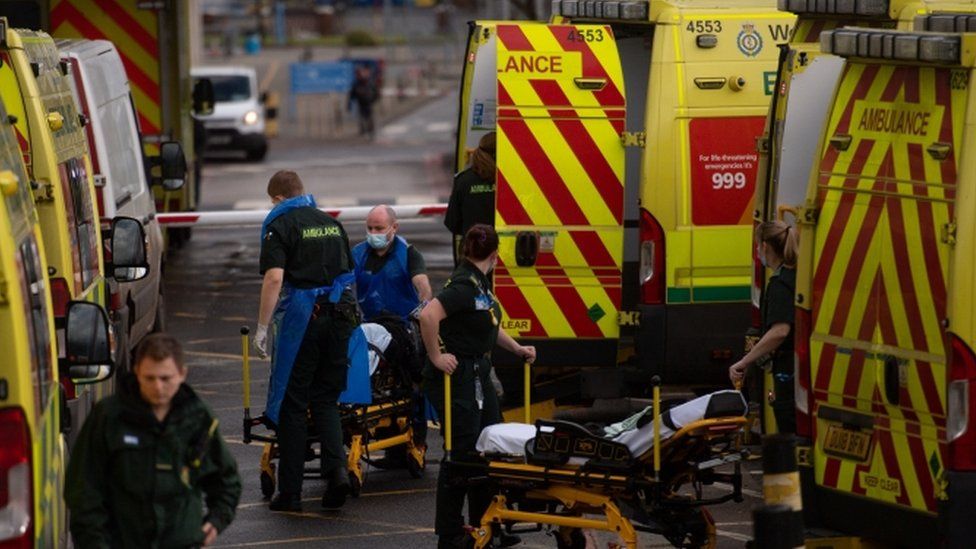ARTICLE AD BOX
 Image source, PA Media
Image source, PA Media
By Nick Triggle
Health correspondent
Ambulance crews reached emergencies such as heart attacks and strokes one hour quicker in January than they did in December in England, figures show.
It took 32 minutes on average, compared to over 90 minutes the month before.
That is the best performance for 19 months, but still short of the target of 18 minutes.
A&E waits also improved, with just over a quarter of patients waiting longer than four hours, down from more than a third in December.
The improvement comes as rates of flu and Covid hospital admissions have started falling since the turn of the year.
Dr Tim Cooksley, president of the Society for Acute Medicine, said despite the improvement the situation was still "intolerable".
He pointed to the waits the sickest and most frail were facing when they needed to be found a bed on a ward.
Nearly four in 10 patients waited over four hours on trolleys and in corridors.
"The fundamental problem remains a significant shortage of workforce leading to woefully inadequate inpatient bed and social care capacity," he added.
NHS England's national medical director Prof Sir Stephen Powis said the improvement was pleasing and praised staff for working "flat out" during winter.
But he warned that the ongoing strike action would "inevitably" impact on the progress being made on waits for planned hospital care such as knee and hip replacements.
The figures showed the waiting list rose slightly to 7.2 million by the end of December, with the number of 18-month waiters increasing by 12% to nearly 56,000.
Tens of thousands of planned hospital operations and appointments have had to be cancelled because of strike action.
Walkouts by ambulance staff and nurses this week led to more than 40,000 bookings having to be rescheduled.
Since industrial action began back in December more than 100,000 patients have been affected.

 2 years ago
62
2 years ago
62








 English (US) ·
English (US) ·